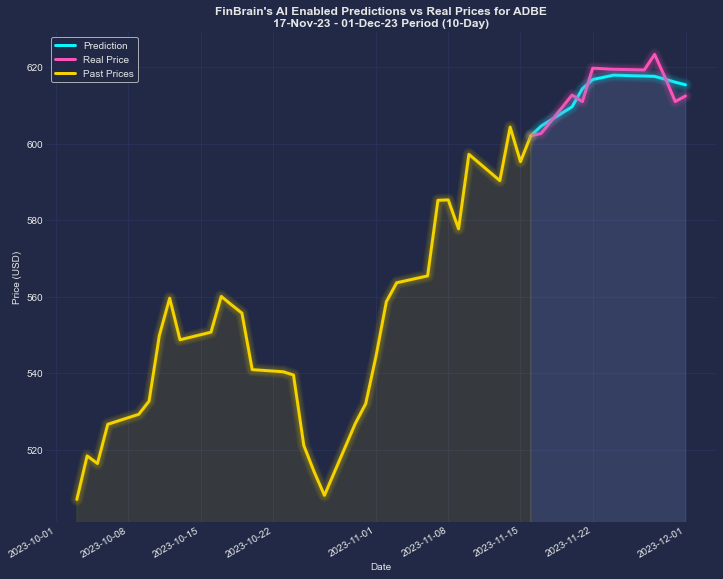20 Free Tips For Picking AI Stock Trading Websites
20 Free Tips For Picking AI Stock Trading Websites
Blog Article
Top 10 Tips To Assess The Security And Privacy Of Ai Trading Platforms
Since they are often handling sensitive financial information, and even personal information, security and confidentiality of data is essential. Data breaches or mishandling could lead to financial and reputational losses. Here are the top ten suggestions to help you understand the security and privacy features of these platforms.
1. Examine the security of your data
Data encryption during transit Verify that the platform is using secured protocols (e.g. TLS/SSL), which encrypts the data that is transferred between your device as well as their servers.
Transporting encrypted data Make sure that the data stored on the server has been encrypted with strong encryption standards, like AES-256.
End-to-end encrypted communication: Make sure that the service you're using offers encryption that is end-to-end to protect any sensitive data.
2. Examine the Authentication Mechanisms
Two-factor authentication (also known as copyright) is an excellent method to improve security.
Biometric authentication - Check to see if there's biometric options for mobile app login (e.g. finger print, facial recognition).
Password policies. Verify whether the platform has strong password policies (e.g. minimum length and minimum complexity, etc.).
3. Examine for Regulatory Compliance
Financial Regulations: Ensure that the platform adheres to the relevant financial regulations.
Data privacy laws: Make sure you comply with any laws relating to data privacy that apply to your business (if applicable) (e.g. CCPA or GDPR).
Audit certifications: Determine if the platform has undergone audits of security by third parties or has certificates (e.g., SOC 2, ISO 27001).
4. Review Controls for Access to Data
Role-based access: Ensure that the platform is using role-based access controls (RBAC) to limit access to data to only authorized users.
Permission levels: Verify that you have the ability to give different permissions to members or members.
Activity monitoring: Determine if the platform monitors and logs user behavior for suspicious behaviour.
5. Assess Vulnerability Management
Regular updates: Ensure that the platform is regularly updated to patch weaknesses.
Verify that your platform is regularly screened to penetration testing to find security weaknesses and correct them.
Bug bounty programs: See if the platform has bugs bounty programs to incentivize external security researchers to identify vulnerabilities.
6. Evaluate Data Privacy Policies
Transparency: Read the privacy policies of the platform in order to know how data is shared, collected, and used.
Data minimization is a method of ensuring that only the data required for functionality are collected by an application.
Third-party Sharing: Verify whether the platform shares its data with third-parties and, if it does and under what conditions.
7. Secure API Utilization is Checked
API security: Make sure the API of the platform API uses secure authentication methods (e.g., OAuth, API keys) and also encrypts data exchanges.
Rate limiting: Check for rate limitations in the API to stop the use of force or misuse.
Access logs: Check if the platform logs API access and use for auditing and monitoring.
8. Assess Incident Reaction and Recovery
Incident response plan - Make sure that the platform is equipped with a plan of action to handle data breaches and other security incidents.
Review the platform's notification policy to see if it notifies users promptly in the event of an incident of security.
Backups of data: Ensure that your platform is regularly backing up its data and that it has a disaster recovery plan.
9. Evaluation of Physical Security Measures
Data center Security: Ensure servers are hosted in secure data centers, with physical security measures (e.g. monitoring, access controls).
Redundancy Check if the platform uses redundant systems to provide data in the event of hardware failure.
Geographic distribution: To increase resilience, make sure that the information is spread over different places.
10. Test privacy controls for users
Data deletion - Ensure that you erase your personal information permanently from the platform if and when you stop using its services.
Privacy settings - You should find out if the platform allows users to set privacy settings to let you to control what data will be shared or visible.
Make sure that you have an anonymization feature. This is essential if you are using the platform to perform analysis or machine-learning.
Bonus Tips
Feedback and reviews from users Reviews and feedback from users to judge the reputation of a website for privacy and security.
Free trial period: Test the privacy and security features using a demonstration.
Customer support: Verify that the platform offers a robust customer support for any security-related concerns or issues.
Following these tips can aid you in assessing the privacy and security features of AI software for predicting or analyzing trades. This will ensure that your personal and financial information is secure. A secure platform not just safeguards assets, it also builds trust in their services. View the most popular additional resources about free ai tool for stock market india for blog info including stocks ai, ai for trading, best stock analysis app, ai stock prediction, ai coin price prediction, trading ai, ai stocks, ai investment stock, best copyright prediction site, stock analysis websites and more.
Top 10 Tips On Assessing Regulatory Compliance Using Ai For Stock Predicting/Analyzing Trading Platforms
The compliance with regulatory requirements of trading platforms that employ AI to analyze or predict stock prices is an important aspect. Compliance ensures that the operation of a platform is within the legal frameworks. Data of users is secured and financial regulations are adhered to and minimizes the chance of legal concerns. Here are 10 top ways to evaluate the regulatory compliance of such platforms:
1. Verify licensing and registration
The regulatory bodies should ensure that the platform is registered and regulated by the relevant financial regulatory bodies (e.g., SEC in the U.S., FCA in the UK, ASIC in Australia).
Verify the broker relationship If your platform has a partnership with brokers or brokers, you need to make sure that these brokers are also licensed and regulated.
Public records: Go to the website of the regulator to see if the platform has been registered or if it has ever violated the law.
2. Compliance with the Data Privacy Evaluation
GDPR: If you operate within or serving users from the EU make sure the platform meets the requirements of the General Data Protection Regulation (GDPR).
CCPA: California Consumer Privacy Act compliance is mandatory for all users.
Policies on handling data. Examine the platform's privacy policy and make sure it clearly describes the ways in which data regarding users is collected, shared and kept.
3. Examining Anti-Money-Laundering/AML measures
AML policies - Check that your platform's AML policies are strong and effective to detect and prevent money laundering.
KYC procedures: Find out if the platform uses Know Your Customer (KYC) that verifies the identity of users.
Monitoring transactions: Find out whether the platform is able of monitoring transactions and reporting any suspicious activity to the appropriate authorities.
4. Verify that you are in compliance with Trading Regulations
Market manipulation: Make sure that your platform has safeguards put in place to protect against market manipulations, such as spoofing trading and wash trading.
Types of orders: Check if the platform is in compliance with regulations regarding order types (e.g. No unlawful stop-loss hunting).
Best execution: Ensure that the platform follows best execution practices to ensure trades are executed at the highest price.
5. Cybersecurity compliance assessment
Data encryption: Ensure that the platform safeguards your data during transit and while at rest with encryption.
Incident response Response to incidents Verify the platform's plan to take action in the event of cyberattacks or data breaches.
Make sure to check for certifications.
6. Transparency, Disclosure and Evaluation
Fee disclosure: Ensure that the platform clearly discloses any fees, hidden or additional charges.
Risk disclosure: Ensure that the platform discloses all risks, particularly if you are using high-risk strategies or trading with leverage.
Performance reporting: Ensure that the platform offers honest and precise reports on the accuracy of its AI models.
7. Check for Compliance with International Regulations
Trans-border trade When you conduct business internationally, make sure your platform is compliant with the regulations in all relevant jurisdictions.
Tax reporting: Determine whether there are any tools or reports available to help you comply with tax laws.
Compliance with sanctions: Check that the platform adheres international sanctions and does not permit trading with prohibited entities or countries.
8. Review Audit Trails and Record-Keeping
Transaction records: Verify that the platform has precise records for purposes of regulatory and audit.
User activity logs Make sure your platform records all activity by users, such as transactions, logins, and adjustments to settings for accounts.
Audit readiness: Find out if your platform can provide the required documentation and logs in the case of an inspection by a regulatory agency.
9. Make sure you are in compliance with AI-specific Regulations
Algorithmic trading rules: If using a platform which supports algorithmic trading, make sure it is compatible with relevant regulatory frameworks such as MiFID II or Reg SCI which are in Europe and the U.S.
Fairness and bias Check whether the platform modifies or is monitoring its AI models to ensure ethical and fair trading.
Explainability. Some regulations may need the platform to describe AI-driven predictions and decisions.
10. Review User Commentaries and Regulatory Historical Historiography
User reviews: Check out user feedback and then compare it with the platform's conformance to norms of the industry.
The history of regulation: Check for past violations of the regulations, fines or penalties.
Third-party audits: Check that the platform has regular audits by a third party to ensure compliance with the regulations.
Bonus Tips
Legal consultation: Talk to a legal expert about the compliance of the platform with relevant laws.
Free trial period: You may avail a demo or a free trial to try out the conformity features of the platform and its documentation.
Customer support - Check that the platform has the capacity to assist with any compliance related issues or concerns.
By using these tips using these tips, you will be able to assess the degree of compliance with the law among AI stock trading platforms. This will enable you to select a platform operating within legal frameworks that protects your interest. The compliance reduces legal risk and builds trust in the platform. See the top rated trading with ai recommendations for website tips including trader ai intal, ai stock trading bot free, best copyright prediction site, ai investing app, ai bots for trading, ai stock trader, trade ai, invest in ai stocks, ai coin price prediction, best ai copyright and more.